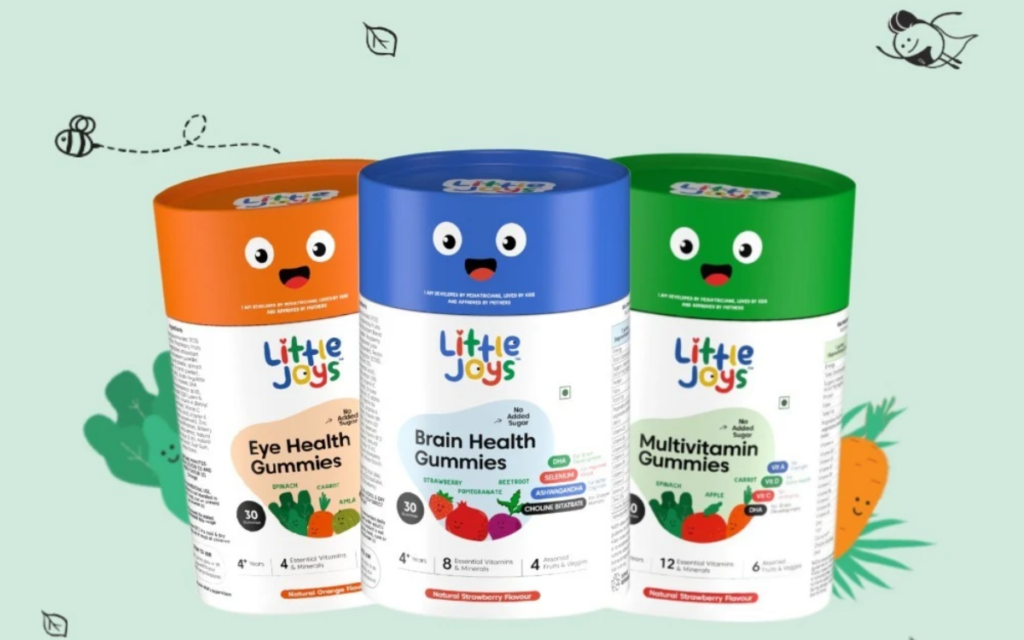The foundation of a child’s growth and development hinges on the quality of their nutrition. A well-balanced and healthy meal plan is not just crucial for kids brain development & physical well-being but also plays a pivotal role in nurturing their mental faculties.
The significance of providing nutritious meals for children cannot be overstated, as it directly impacts their overall growth and cognitive abilities. This article will talk about a few benefits of healthy eating for growing kids for their better physical and mental health that the parenting community should know about.

- Physical Growth:
A nutritious diet acts as the cornerstone for a child’s physical development. Essential nutrients like proteins, carbohydrates, vitamins, and minerals are vital for bone development, muscle growth, and overall physical health.
A diet rich in fruits, green vegetables, proteins, dry fruits, and whole grains provides the necessary nutrients to support a child’s growing body, ensuring they reach their developmental milestones effectively that you can track with the help of a kids BMI calculator app.
- Cognitive Development:
The correlation between nutrition and cognitive function is profound. Research indicates that a well-balanced diet contributes significantly to a child’s brain development and cognitive abilities.
Nutrients like omega-3 fatty acids, found in fish, nuts, and seeds, are crucial for brain health and can enhance cognitive performance, memory, and concentration in children. Additionally, vitamins and minerals obtained from a balanced diet positively impact learning abilities and problem-solving skills.
Furthermore, parents can even try kids recipe generator apps to make delicious healthy dishes for their kids
- Behavioral and Emotional Well-being:
Healthy eating habits also influence a child’s behavior and emotional well-being. Discussion among the community for moms have shown a connection between a balanced diet and mood regulation in children. Foods rich in antioxidants, like fruits, seeds, nuts, and vegetables, can be helpful in reducing symptoms of anxiety and depression.
Moreover, maintaining stable blood sugar levels through healthy meals can contribute to a more even temperament and better emotional resilience in children.
- Importance of Meal Diversity:
Variety in meals ensures that children receive a wide range of nutrients necessary for their growth. Encouraging diverse food choices not only introduces new flavors but also exposes children to different nutrients, fostering a well-rounded and healthy diet.
Incorporating fruits, vegetables, whole grains, lean proteins, and dairy products in various forms ensures a balanced intake of essential nutrients.
- Role of Parents and Elders:
Community for parents and other elders play a pivotal role in shaping children’s eating habits. Creating a positive mealtime environment, involving children in meal preparation, and being role models by consuming nutritious foods themselves can significantly influence a child’s food choices.
Educating elder children about the benefits of healthy eating instills lifelong habits that contribute to keeping kids hair, body and skin healthy.
In conclusion, the significance of healthy meals in shaping a child’s physical, cognitive, and emotional development cannot be emphasized enough. Providing a well-balanced diet not only supports their growth but also enhances their cognitive abilities, behavioral patterns, and emotional stability.
Investing in nutritious meals & kids body products is an investment in their future. By prioritizing healthy eating habits and ensuring a diverse and balanced diet, parents and caregivers lay the foundation for children to thrive physically, mentally, and emotionally, empowering them to reach their full potential and lead healthy, fulfilling lives.